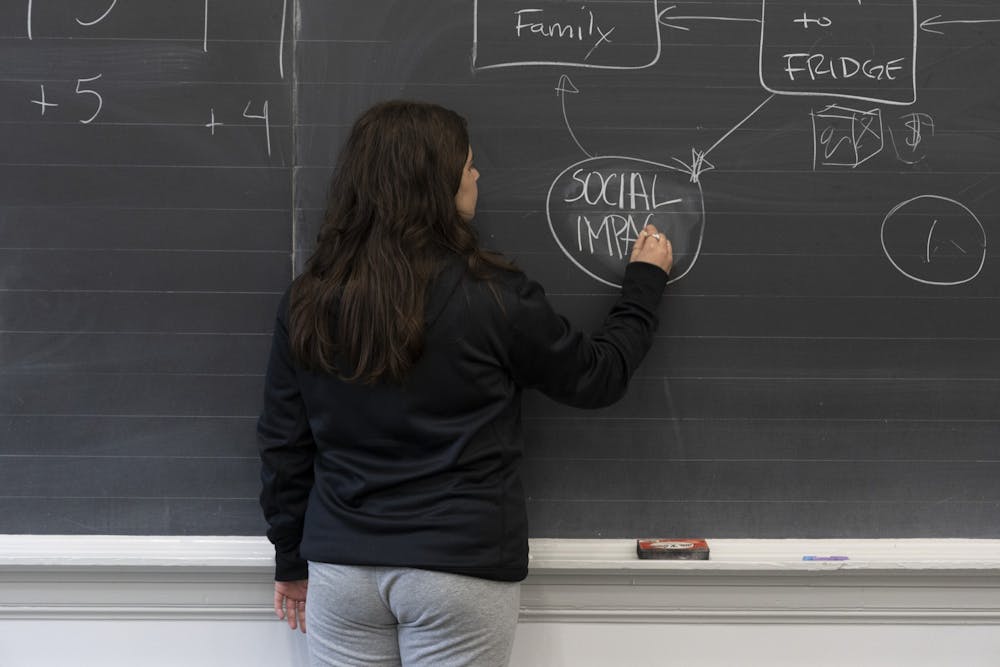It is an understatement to say that no-technology policies are highly polemical among University students. Syllabi that include such provisions are met with incredulity and promptly disregarded. This reputation, however, is largely undeserved and fails to understand the comprehensive and communal benefits of technology-free classrooms. No-technology policies not only facilitate genuine engagement and inhibit distraction, they also promote study habits conducive to deeper neurological processing and higher academic achievement.
Professors who question technology’s role in the classroom often cite the potential for widespread student distraction. According to one study, computer use in classrooms produces extreme distraction for students because of cyberslacking and chronic multitasking. Notably, even students who were not using computers while in the classroom experienced increased distraction because of their classmates’ use of computers. The study observed that on average, students who were allowed to use technology spent seventeen minutes out of a 75 minute class period multitasking on unrelated material in an attempt to maximize efficiency. Assuming this class period occurs twice a week for 15 weeks, students are disengaged for 8.5 hours in a single class each semester.
Predictably, such high levels of distraction negatively affects academic performance. In 2017, a different study concluded that computer use in classrooms is tied to worse academic outcomes. The researchers observed that computer use had a notably negative impact, with computer use costing students between 0.14 and 0.37 points in their GPAs. In an increasingly competitive workforce, such seemingly minor differences can be hugely impactful for admission to graduate schools and future job obtention.
Diminished academic achievement is partially explained by distractibility, but can also be attributed to shallow material processing. In 1972, psychologists Fergus I. M. Craik and Robert S. Lockhart proposed a framework explaining that information retention is a function of processing depth. Their work articulated that processing information more deeply — which is, in part, dependent upon having ample time during which to pay careful attention — increases information retention.
Interpretations of this retention framework explain that handwritten notes improve memory because the unique motor movements of writing each letter promote deeper processing. The repetitive and non-specific movements associated with typing, in contrast, promote minimal processing. Relatedly, the comparative slowness of handwriting requires that students synthesize presented information instead of regurgitating the professor's words. In short, technology-free classrooms, and the handwritten notes that accompany them, prevent distraction and encourage greater information retention by forcing students to think critically about the notes they are taking.
We must consider, however, whether disabled students are disproportionately disadvantaged by no-technology policies. Disabled students are among the main beneficiaries of new technological developments in classroom accessibility, leading some to think that no-technology policies violate the imperative for inclusive and non-judgemental classrooms. In fact, digitized learning does promote malleability for historically marginalized students. So the removal of this flexibility is often seen as negatively impacting disabled students while prioritizing the academic success of able-bodied ones.
Many professors who institute no-technology policies attempt to resolve the ableism of no-technology policies by permitting technology for students with disabilities. This is counterproductive and needlessly singles out disabled students. At the University, the Student Disability Access Center provides an alternative to these sorts of problematic no-technology policies — the Peer Notetaking Program. Through this program disabled students can anonymously obtain class notes taken by their peers. While this is not the perfect solution, it does promote equitable benefits from no-technology policies.
Much like able-bodied students, students with disabilities will benefit from diminished distractions and deeper content processing in no-technology classrooms. However, the space to process content more deeply is created differently for students with disabilities than it is for able-bodied students. Able-bodied students benefit from the movements of handwriting and the immediate synthesis of information. In contrast, disabled students benefit from built-in increased processing time. First, they absorb material in class, and then they synthesize provided notes. As these students return to the material, they experience improved memory development and consolidation. Although it is impossible to guarantee that the experiences of disabled and able-bodied students in technology-free classrooms will be entirely uniform, no-technology policies can be administered to accommodate disparate needs and to produce equitable results.
Today, it is impossible to ignore that we live in a digitized age. It would be foolish to banish technology outside the classroom. Nevertheless, it would be equally foolish to presume that technology has a productive role inside the classroom. Students’ collective distractibility and compromised retention are unsustainable and insufficient. Professors who institute no-technology policies have realized this and, as is their responsibility, seek to promote student achievement and encourage retention of presented information. No-technology policies have not closed a door on technology so much as they have opened one for genuine communal and interpersonal learning.
Naima Sawaya is a Viewpoint Columnist who writes about Academics for The Cavalier Daily. She can be reached at opinion@cavalierdaily.com.
The opinions expressed in this column are not necessarily those of The Cavalier Daily. Columns represent the views of the authors alone.







